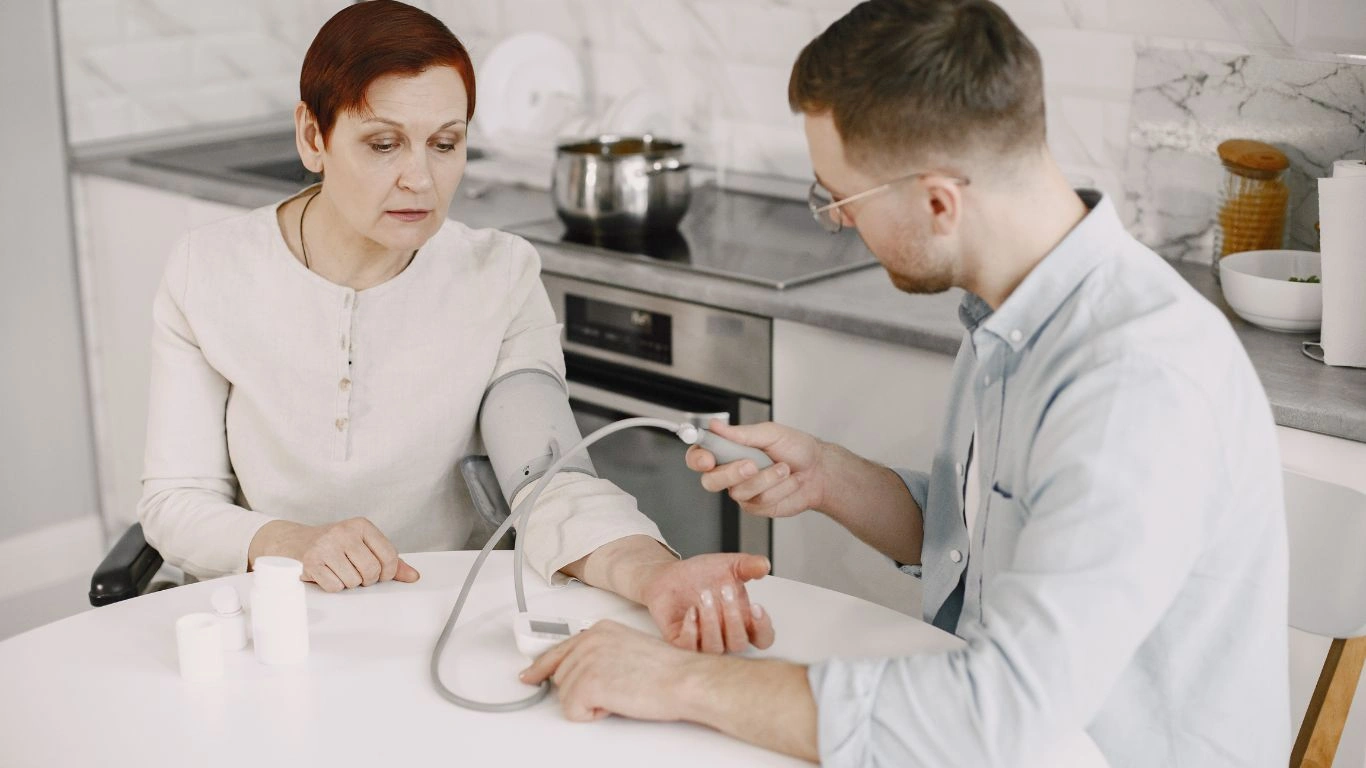Effects of High Blood Pressure on the Brain: What You Need to Know
Worried about how high blood pressure might be affecting your brain? You’re not alone! Let’s talk about why it’s crucial to keep your blood pressure in check and how it impacts your brain in ways you might not expect.
If you’re dealing with high blood pressure, you probably already know it can affect your heart and cause problems with your arteries. But did you know it can also mess with your brain? Yep, high blood pressure (also known as hypertension) can sneak up on you and cause some serious damage to your brain’s health over time. It’s not just about the heart—it’s about the whole body, and your brain takes the hit in more ways than you might think.
In this article, we’ll break down how high blood pressure impacts the brain, what happens when it’s left unchecked, and how you can protect your brain by managing your blood pressure.
How Does High Blood Pressure Affect the Brain?
Your brain relies on a constant flow of oxygen and nutrients to keep everything running smoothly. Blood vessels in your brain deliver that life-sustaining supply. When your blood pressure is high, those blood vessels are under more stress than they should be. Over time, this can cause some pretty serious issues, including cognitive decline and even stroke.

Stroke Risk
The most dangerous and immediate effect of high blood pressure on the brain is an increased risk of stroke. When your blood pressure is consistently high, it can weaken the blood vessels in your brain, making them more likely to rupture. This can lead to bleeding in the brain, or a hemorrhagic stroke, which can be life-threatening.
Even if you don’t experience a stroke, high blood pressure is linked to an increased risk of ischemic strokes, where a blood clot blocks blood flow to parts of the brain. So, yeah, keeping your blood pressure in check is key to reducing the chances of having a stroke.

Cognitive Decline
It’s not just the dramatic stuff like stroke that you need to worry about. High blood pressure can also sneakily affect your brain’s function over time. Studies show that it can lead to cognitive decline and memory problems. The brain can lose its ability to think clearly and process information as effectively when there’s a reduced supply of blood due to narrowed or damaged blood vessels.
High blood pressure can also increase the risk of developing dementia later in life. There’s a growing connection between hypertension and Alzheimer’s disease, and it’s believed that the damage to blood vessels in the brain from prolonged high blood pressure may contribute to the development of Alzheimer’s. Scary, right?
How High Blood Pressure Affects Mental Clarity
Ever feel like your brain is in a fog, and you’re having trouble focusing? That could be your blood pressure talking. People with untreated high blood pressure often report having trouble with memory, concentration, and mental clarity.
The thing is, high blood pressure doesn’t usually come with symptoms, which makes it tricky to detect unless you’re regularly checking it. But even when you don’t feel anything physically, it could be affecting your cognitive abilities. The damage may not be obvious right away, but it adds up over time.

Protecting Your Brain: Tips for Managing High Blood Pressure
Okay, so high blood pressure can be pretty rough on your brain, but the good news is that it’s manageable! Here are some tips to help you keep your blood pressure in check and protect your brain:
1. Regular Exercise
Exercise is a game-changer when it comes to controlling blood pressure. Even just 30 minutes of moderate activity, like walking or swimming, can help lower your blood pressure. It’s one of the best things you can do for both your heart and brain.
2. Eat a Brain-Healthy Diet
What you eat plays a huge role in managing blood pressure. Aim for a diet rich in fruits, veggies, whole grains, lean proteins, and healthy fats. The DASH (Dietary Approaches to Stop Hypertension) diet is particularly great for lowering blood pressure.
3. Monitor Your Blood Pressure
Make a habit of checking your blood pressure regularly. If you’re unsure where to start, talk to your doctor about how often you should be monitoring it. Keeping track helps you stay on top of any potential issues before they become bigger problems.
4. Limit Salt Intake
Salt is a major culprit in raising blood pressure, so keeping your sodium intake low is key. Try cooking more at home, and be cautious with processed foods, as they tend to have a lot of hidden sodium.
5. Manage Stress
Chronic stress is another thing that can raise your blood pressure, so finding ways to relax and decompress is essential. Whether it’s meditation, yoga, or just taking a few deep breaths during the day, stress management is a vital part of the equation.
6. Take Medications as Prescribed
If your doctor has prescribed medication to help control your blood pressure, make sure you take it as directed. Skipping doses or stopping your meds without talking to your doctor can result in dangerous spikes in your blood pressure.

Conclusion
High blood pressure isn’t something to take lightly—especially when it comes to its effects on your brain. From cognitive decline to stroke, the risks are real. But with the right lifestyle choices and medical guidance, you can protect both your heart and your brain from long-term damage. Just remember, keeping your blood pressure under control is one of the best things you can do for your brain health. So, take action now, and keep that blood pressure in check for a healthier, clearer future!
Appendices
References
- American Heart Association. (2023). “High Blood Pressure and the Brain.” Read Article
- Smith, R., & Lee, J. (2022). “Hypertension and Brain Health: A Comprehensive Review.” Journal of Clinical Neurology, 45(3), 130-145.
- National Institute of Neurological Disorders and Stroke. (2024). “Stroke and High Blood Pressure.” Read Article
FAQs
- Can high blood pressure cause memory loss?
Yes, over time, high blood pressure can lead to cognitive decline and affect your memory and concentration. - What is the best diet for lowering blood pressure?
The DASH diet is widely recommended for lowering blood pressure. It focuses on eating fruits, vegetables, whole grains, and lean proteins. - How often should I check my blood pressure?
If you have high blood pressure, aim to check it regularly—at least once a week. Ask your doctor for specific recommendations based on your situation. - Can stress raise blood pressure?
Absolutely! Chronic stress can cause your blood pressure to spike, so managing stress is key to keeping it under control. - What are some early signs of a stroke from high blood pressure?
Sudden numbness or weakness, especially on one side of the body, confusion, trouble speaking or understanding speech, and difficulty seeing in one or both eyes are all warning signs of a stroke.
Disclaimer
The information provided in this article is for educational purposes only and does not substitute for professional medical advice. Always consult your healthcare provider to discuss blood pressure concerns and treatment options. Individual needs may vary, and professional guidance is essential for personalized care.












